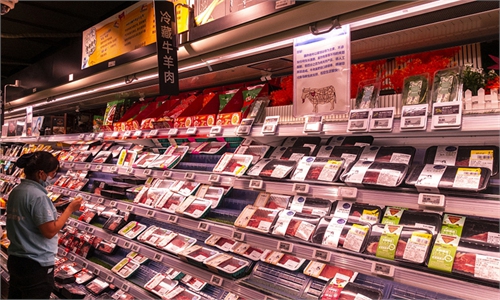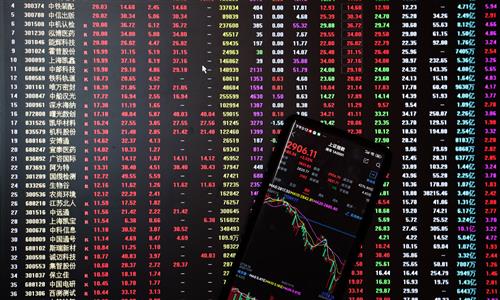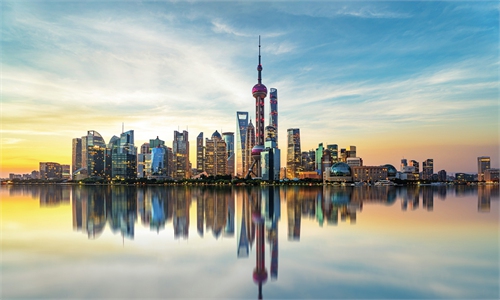China-Thailand ties to gain momentum
‘Pathetic’ for West to suppress fair competition through ‘Chinese overcapacity:’ Thai banker

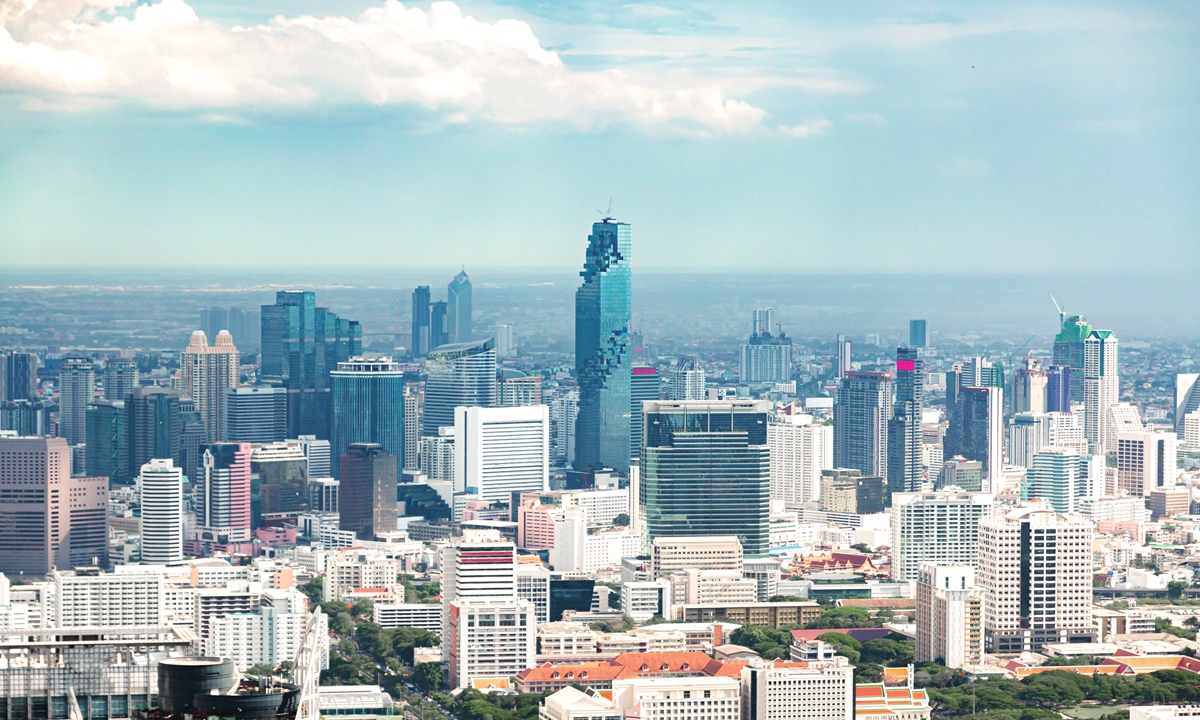
City view of Bangkok,capital of Thailand Photo: VCG
Editor's Note: China and Thailand share a traditional friendship and have witnessed the bilateral cooperation continuously deepen in recent years. The building of the China-Thailand community with a shared future has maintained strong momentum. As a Thai foreign ministry official announced on Thursday that Thailand is pushing forward with its plan to become a member of the BRICS group of emerging economies as early as October at the bloc's next summit in Russia, Global Times (GT) reporter Chu Daye spoke with Wichai Kinchong Choi (Choi), senior vice president of Thailand's Kasikorn Bank, in a recent exclusive interview to discuss the significance of the move, the current momentum of bilateral cooperation and the potential on the two countries' joint building of the Belt and Road Initiative (BRI). Choi also pointed out that the ridiculous hype surrounding China's "overcapacity" by Western politicians is a pathetic move.
GT: Thailand and Malaysia are applying to join the BRICS. What do you think this will bring to the world?
Choi: As an important member of ASEAN, Thailand's announcement of its intention to become a member of the BRICS group of emerging economies is of great significance not only to Thailand itself but also to ASEAN as a whole. The ASEAN economy has seen rapid growth in recent years, and its influence has increased gradually. Joining the BRICS is not only conducive to Thailand's economic development but also enables Thailand to play a greater role in the international arena. Thailand's joining of BRICS will certainly provide favorable conditions for further strengthening all-round exchanges and cooperation with BRICS countries and the ASEAN. At present, the Thai government is actively improving Thailand's status in the international arena. As we all know, the Thai economy was founded on two pillars - exports and tourism. As such, Thailand has always been a supporter of multinationalism and free trade. Thailand's eventual accession to the BRICS will strongly boost the in-depth internationalization of trade and economic cooperation, cultural exchanges, and development in the region.
The active participation of developing countries, such as Malaysia and Thailand, in joining BRICS clearly illustrates several facts: First, countries recognize the economic prowess of BRICS countries, especially China. Second, it can bring access to a huge market and economic interests to BRICS members; last but not least, these developing countries do not recognize "taking sides" and instead, are willing to join a cooperation platform that offers fairness, mutual respect, and opportunity to achieve common development.
GT: Where do you see the highlights of the joint construction of BRI between China and Thailand this year?
Choi: China has put forward major steps to support high-quality Belt and Road cooperation, including building a multidimensional Belt and Road connectivity network, supporting an open world economy, continuing to advance scientific and technological innovation, and supporting people-to-people exchanges.
The core of BRI is cooperation and common prosperity and development hand in hand. Through the "Belt and Road Initiative" model, countries along the Belt and Road are open and inclusive in related fields, exchange needed goods, share resources, learn from each other, complement each other, and develop together.
Another important contribution of the BRI is to further consolidate the global industrial and supply chains. Amid the US crackdown and blockade on China in the scientific and technological fields, China is self-reliant and has created its own high-techs in the fields of new energy, renewable energy, artificial intelligence, the internet, and e-commerce, among others. These high-tech cutting-edge industries are based in China, while the relevant middle- and low-end industries are distributed and produced across ASEAN members. We believe that globally customized production and division of labor are the two predominant features of the development of China's supply chain in the post-epidemic period.
The Thai government has always supported the BRI because Thailand needs close exchanges and cooperation with countries all over the world, especially China in the field of economic affairs, trade, and culture. A high-quality BRI is exactly what the Thai government expects and needs.
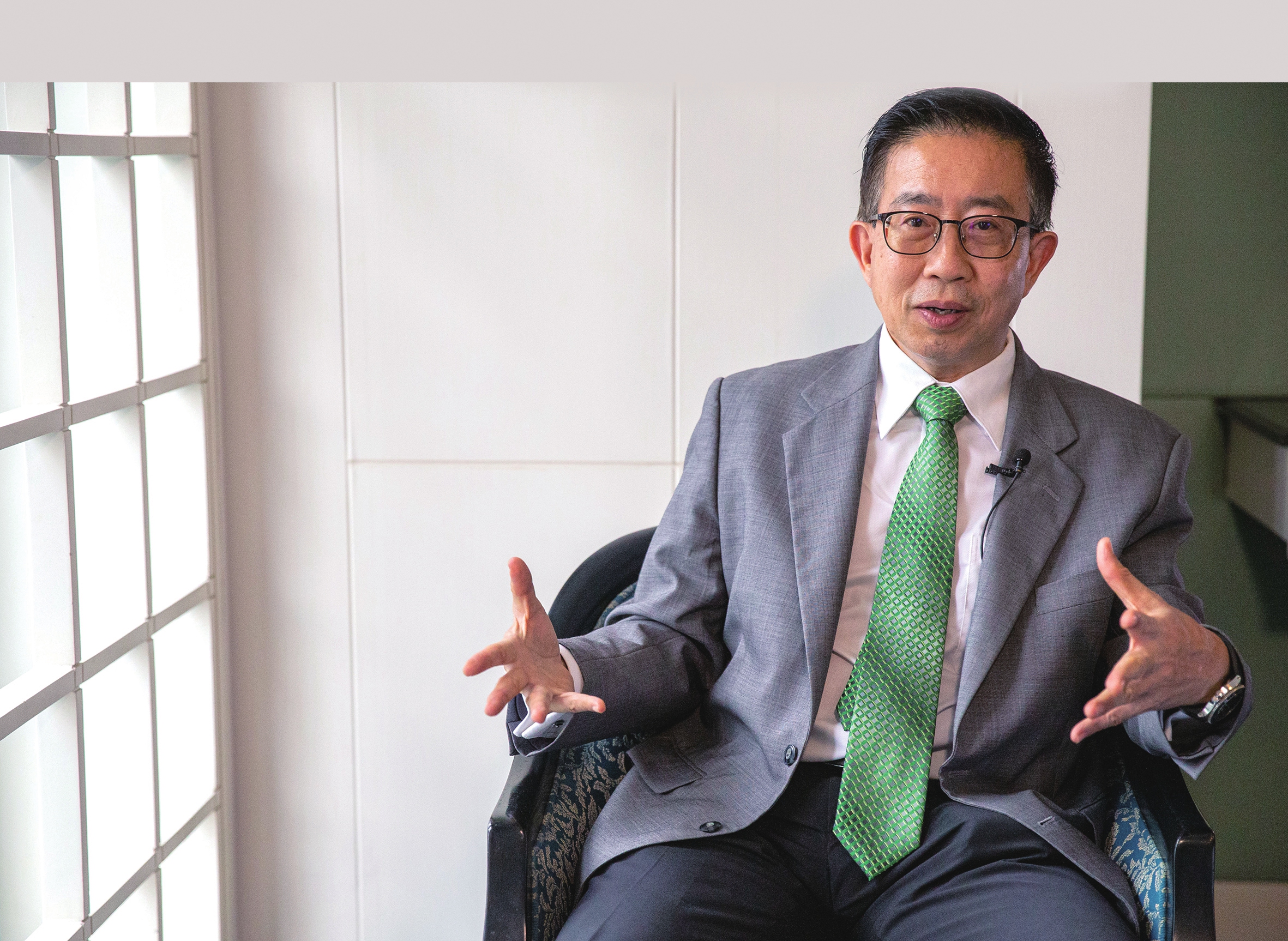
Wichai Kinchong Choi Photo: Courtesy of Wichai Kinchong Choi
GT: How do you view the "China overcapacity" argument hyped by Western politicians and media outlets? What is their real motive?
Choi: The question of whether China is exporting "overcapacity" or not can only be objectively answered after people abandon the Cold War mentality. After 40 years of reform and opening-up, China has gradually established a complete, balanced, flexible, and effective industrial system, and has become the second-largest economy in the world.
Over the years, through the improvement of scientific and technological research and development capabilities, the continuous improvement of the industrial chain supply chain, coupled with the guidance of the Chinese government's macroeconomic policies, as well as the country's huge and resilient market, Chinese enterprises have developed strong trade competitiveness and industrial advantages. In recent years, based on traditional industries, China has made breakthroughs in various emerging science and technology industries, developed a variety of advanced products, and further improved market competitiveness.
It is a shame that Western countries should regard the international trade of China's emerging industries with first-mover advantages, such as lithium batteries, electric vehicles (EVs), and photovoltaic products, as exporting "overcapacity"! We must see clearly that China's economy has long been integrated into the global market following China's accession to the WTO.
Chinese enterprises have achieved near internationalization in their allocation of resources. China's buildup of its economic capacity, which involves a lot of foreign investment, is entirely oriented toward the global market and is designed to meet the needs of global customers. As long as the global demand remains, there will be no so-called market glut. At present, there is a great demand for EVs, green energy products, lithium batteries, and other products in the world market, and the first-mover advantages of Chinese enterprises' early investment in these high-tech and innovative fields endowed their products with great competitiveness, and these high-quality and inexpensive products will certainly be loved by consumers all over the world.
The West claims that China's new-energy products have flooded the global market, but statistics show that China's new-energy related technology products actually account for a small share of China's exports. We know that China is now the world's largest market for pure electric and hybrid cars, and China's exports as a share of its total production are much lower than those of [international] car producers such as Germany, Japan, and South Korea.
In recent years, products from China's emerging industries, including EVs, lithium batteries, and green energy, have successfully taken a prominent market position globally and have gained a genuine competitive advantage, which is the result of active innovation and R&D by Chinese enterprises and the control of production costs. Western manufacturers have lost the relevant market, and for that Western governments should have seriously reviewed their industrial development policies. Instead, they blamed China's export "overcapacity," using this as an excuse to suppress fair competition, indulge in trade protectionism, and harm the interests of consumers. It is really pathetic.
GT: What is the state of Chinese new-energy vehicles in Thailand and other Southeast Asian countries? Does the local market feel pressure from "overcapacity"?
Choi: Most developing countries have completely different views and reactions to the so-called overcapacity narrative made by the West. In recent years, Chinese EVs have become very popular in the Thai market, and sales have increased steadily. Now in the traffic flow shuttling back and forth in downtown Bangkok, we can see many Chinese electric cars.
The Thai people need a new generation of vehicles that are clean, environmentally friendly, novel, and practical, and they sincerely thank Chinese manufacturers for providing these good products. With the increasing national demand for high-tech products, to promote the high-quality development of the country's economy, the Thai government wisely formulated preferential policies to attract manufacturers from EV, lithium batteries, green energy, and other industries, including China, to invest and set up factories in Thailand, to build Thailand into a high-tech production base and become part of the global industrial chain supply chain, to expand into the global market. In recent years, we are pleased to see that many powerful Chinese manufacturers have taken root in Thailand, producing high-quality products and actively infiltrating overseas markets. Here, we see a typical case of resource sharing, making up for weaknesses and learning from strengths; mutual benefit, cooperation, and common development!
GT: What do you think of the EU's proposed tariffs on electric cars made in China?
Choi: China took an active role in EV research and development many years ago, accumulating rich experience in scientific and technological development, production efficiency, and cost management. There is no doubt that governments in the US and the EU have felt a great deal of pressure. The proposed levy of China's EVs is like erecting a wall to guard off free trade. While it may affect the sales of China's EVs in overseas markets in the short term, its long-term effect is puny and it has a lot of counter-effects. The biggest victim would be the EU consumers, who are denied taking advantage of cheap goods to enjoy the new and good products. When China adopts corresponding countermeasures, the result will be mutual harm, greatly undermining the normal development of international trade.

